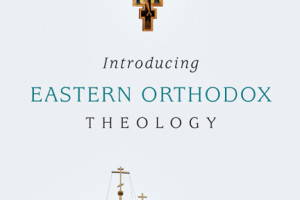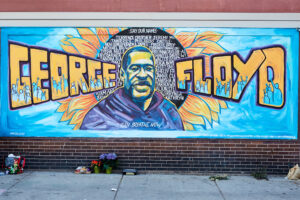Withstanding the apostles and Jesus himself, Saint Aurelius Augustine is arguably the greatest Christian theologian of the first millennium. His contributions to the understanding and development of Bible interpretation are incalculable. He was a man ahead of his time. Indeed many of the current debates on hermeneutics and postmodern literary criticism appeal to Augustine for insight on issues of meaning, role-of reader, and semiotics. Augustine’s hermeneutical reputation is often limited to his allegorical exegesis, yet his hermeneutics were much more sophisticated than merely allegorical interpretation.
Augustine’s overriding hermeneutical principle was both simple and profound. He states in Book I of On Christian Doctrine, “The fulfillment and end of scripture is the love of God and our neighbor.”[1] Augustine identifies this principle as the “sum” of all Bible interpretation.[2] For Augustine then, true understanding of scripture is not ultimately realized by discovering the text’s historical meaning or theological meaning or even doctrinal meaning; true understanding of scripture is realized when the reader submits to the authority of the text and experiences personal transformation worked out in greater love for God and fellow man.
“Whoever, then, thinks that he understands the Holy Scriptures, or any part of them, but puts such an interpretation upon them as does not tend to build up this twofold love ofGod and our neighbor, does not yet understand them as he ought.”
True Biblical interpretation, then, does not culminate in the mind’s ascent to a greater knowledge or the collection of facts. Instead, true Bible interpretation culminates by producing an effective change within the reader.
While this perspective on hermeneutics may seem quite simple, in reality its assumptions are profoundly different than the modern approach to Biblical studies. The modern hermeneutical approach to Bible interpretation is an objective enterprise. That is, the Bible is the object and the reader is the subject. The object (Bible) is painstakingly scrutinized, examined, and studied until the subject (reader) discovers meaning that satisfies his investigation. If Augustine’s hermeneutic of love is right, then this approach in fundamentally flawed. According to Augustine, Bible interpretation is in a sense, a subjective enterprise. That is, the Bible is the subject and the reader is the object. When a reader engages the Bible, the subject (Bible) scrutinizes, examines, and studies the object (reader), which results in transformation and sanctification in the life of the reader. Frances Young, commenting on Augustine’s hermeneutic, states, “We mortals no longer make judgments about truth and meaning; rather, the truth and meaning of God judges us and transforms us.”[3]
Such an understanding of Bible study was no doubt influenced by Augustine’s own conversion experience. As Augustine sat in despair about the circumstances of his life, he heard the refrain sung from the mouths of children, “Tolle Lege” (take and read). He picked up the apostle Paul’s letter to the Romans and read chapter 13:13-14. He was immediately transformed by the power of the Spirit and believed the gospel. As Karlfried Froehlich has stated, “Rather than the teacher of rhetoric interpreting the Bible, the Bible interpreted him through the providential action of God’s Spirit.”[4]
We can glean much from Augustine’s hermeneutical method. The true student of the Bible approaches the Bible with a posture of humility, ready to humbly receive the text for what it is – the word of God. As we engage the text, our goal is always personal transformation manifested in greater love for God and neighbor. After all, you never fully understand the text until you stand under it.[5]
Matthew Emadi is working on a Ph.D in Biblical Studies under Jim Hamilton at The Southern Baptist Theological Seminary (SBTS). He has a B.S. in Supply Chain Management from Weber State University and an M.Div. in Biblical and Theological Studies from SBTS. Matthew is Pastor for Family Ministry at New Heights Baptist Church in Louisville, Kentucky, as well as head coach of the men’s basketball team at Boyce College. He lives in Louisville with his wife Brittany and two children, Elijah and Jeremiah.





6 Comments
Leave your reply.